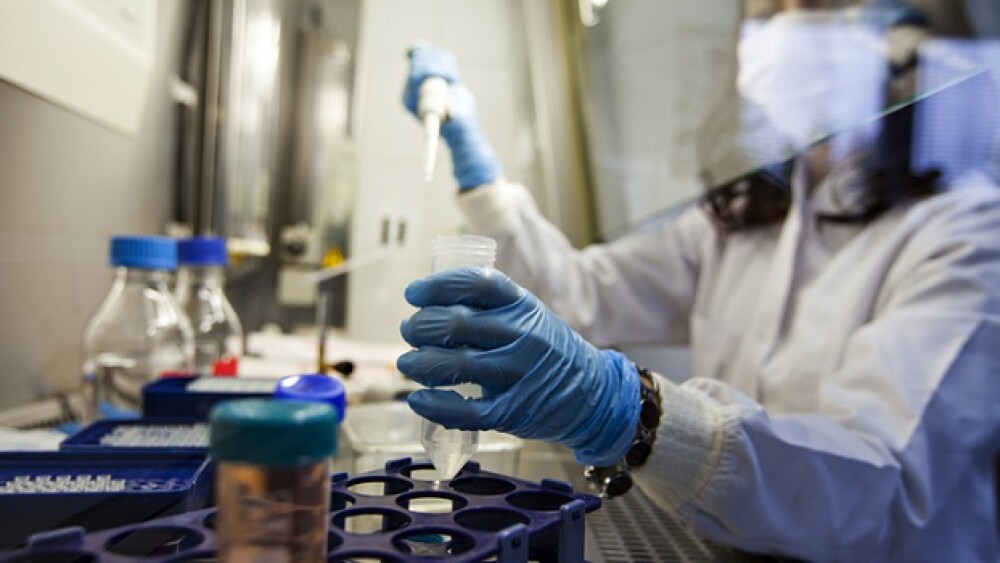Elicio Therapeutics published data on the preprint server bioRxiv, describing preclinical research into its cancer vaccine that shows a lot of promise.
Immuno-oncology has grown enormously in the last decade, and the COVID-19 pandemic has accelerated our knowledge of the immune system. Elicio Therapeutics published data on the preprint server, bioRxiv, describing preclinical research on its cancer vaccine that shows a lot of promise.
The company’s proprietary Amphiphile (AMP) platform allows the delivery of investigational immunotherapeutics directly into the lymph nodes. The theory is that this site-specific delivery of disease-specific antigens, adjuvants or other immunomodulators can more effectively educate, activate and amplify immune cells. The AMP platform was originally developed at the Massachusetts Institute of Technology, and they believe it has broad potential for cancer, infectious diseases and other indications.
The AMP platform works by attaching the desired molecule to the protein albumin in the bloodstream as it travels to lymphatic tissue. In the research study, the AMP platform vaccine carried cognate peptide and adjuvant cargos with T cell receptor T cell therapies (TCR-Ts).
“The AMP platform continues to show boosting capabilities in our preclinical studies of cancer immunotherapies by successfully targeting the lymph nodes,” said Peter DeMuth, Ph.D., Elicio’s chief scientific officer. “T cell receptor (TCR)-modified T cell therapies have historically shown promise but challenges to clinical efficacy against solid tumors persist. Often, suboptimal clinical performance can be attributed to insufficient in vivo persistence of current treatments and tumor antigen escape. With this study, we’ve shown that combining TCR-T cell therapies with our lymph node targeting AMP-vaccines can overcome these challenges to significantly improve preclinical efficacy in animal models of solid tumors.”
In October 2021, the company initiated dosing in patients of its lead AMP vaccine, ELI-002, in a Phase I/II Amplify-201 clinical trial in KRAS-driven solid tumors. It was launched at MD Anderson Cancer Center in Houston. The trial is enrolling patients with mKRAS+ solid tumors, including pancreatic ductal adenocarcinoma (PDAC), colorectal cancer (CRC), non-small cell lung cancer (NSCLC) and other solid tumors.
ELI-002 is an AMP KRAS vaccine containing AMP mKRAS peptides and a proprietary AMP CpG adjuvant. It is administered subcutaneously.
“Our unique trial design will study the ability of ELI-002 to generate RAS-specific killer T cells that target the microscopic residual tumor cells that remain following surgery,” said Dr. Christopher Haqq, M.D., Ph.D., company executive vice president, Head of Research and Development, and chief medical officer. “With its design to target lymph nodes, the ‘schoolhouse’ where T cells are educated, we believe ELI-002 holds promise to lengthen remission and could prevent future recurrence. We expect to share initial data by the first half of 2022.”
On May 16, 2022, Elicio inked a deal with Regeneron Pharmaceuticals where Regeneron will supply its anti-PD-1 checkpoint inhibitor Libtayo (cemiplimab) to be tested with ELI-002 in KRAS-driven tumors. Specifically, they will focus on Stage III and IV NSCLC, Stage IV CRC and unresectable, locally advanced or oligometastatic pancreatic ductal adenocarcinoma (PDAC). Libtayo is being jointly developed by Regeneron and Sanofi.
At the time, Haqq said, “We’re investigating ELI-002’s immune education in combination with the ability of Libtayo to block PD-1 and potentially activate the ELI-002-induced T cells to target cancers. This combination may provide a new treatment option for patients living with these difficult to treat cancers.”
In the most recent preclinical publication, Robert Connelly, Elicio’s CEO, stated, “Our AMP platform has huge potential to address some of the major challenges that continue to plague the field of immuno-oncology. We are delighted to share the results of this study because it provides rationale and evidence to support combining our AMP-peptide vaccine with TCR-T cell therapies to augment clinical responses.”





